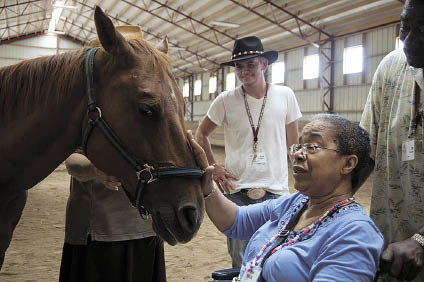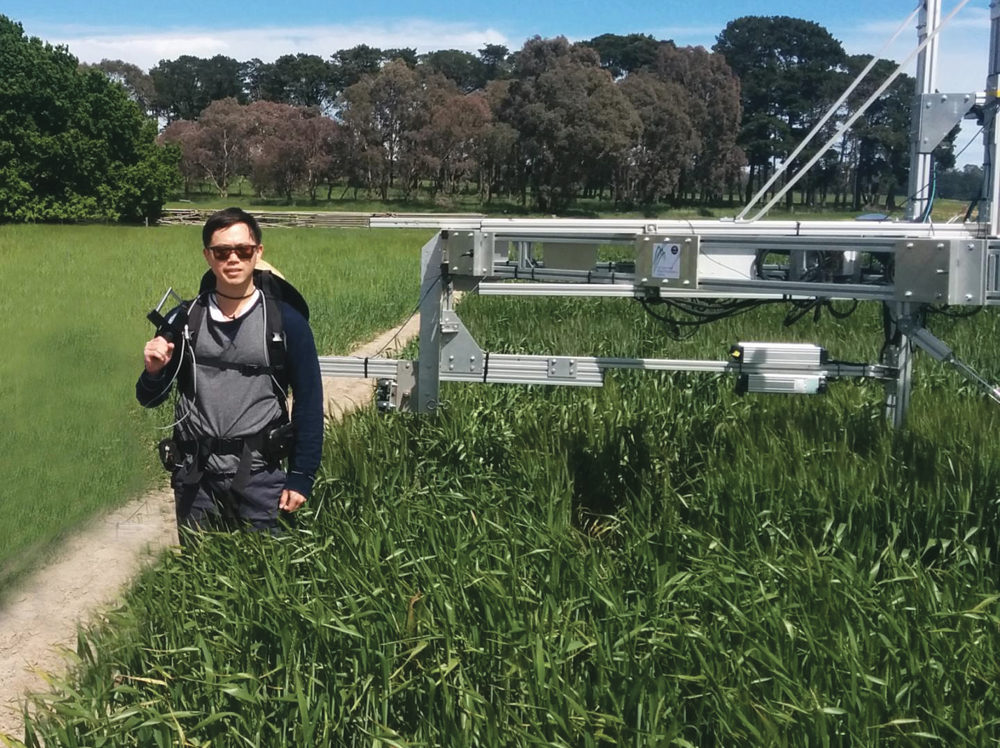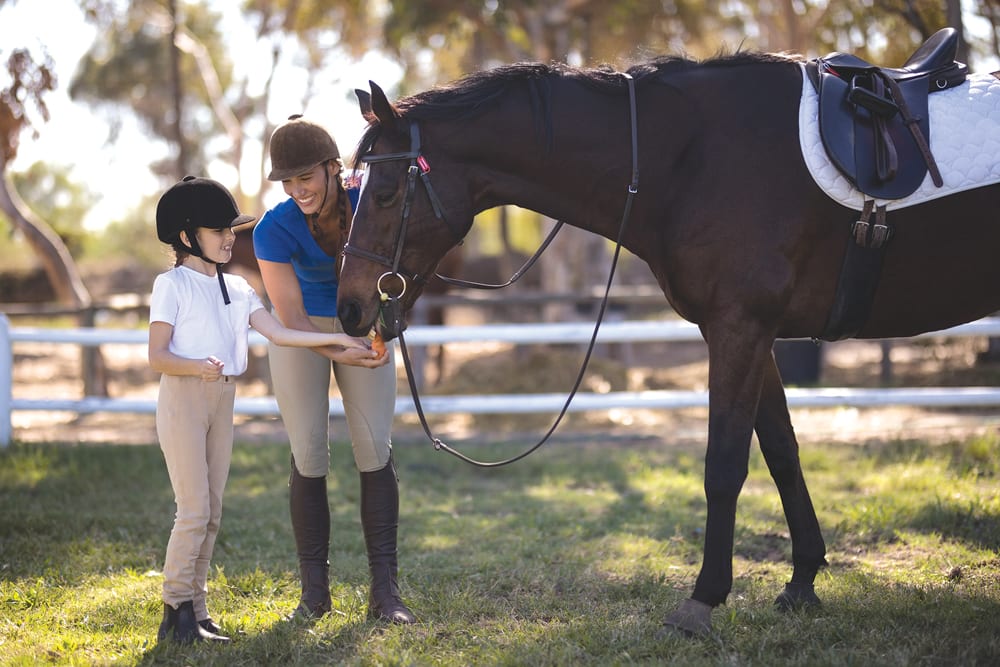Ohio State University researchers have added a new study to the mounting evidence supporting the old adage attributed to Winston Churchill: “There’s something about the outside of a horse that’s good for the inside of a man.”
They have found spending time with horses eases symptoms of Alzheimer’s dementia.
A collaboration between the Ohio State University, an equine therapy centre and an adult daycare centre found that people with Alzheimer’s were able to safely groom, feed and walk horses under supervision — and the experience buoyed their mood and made them less likely to resist care or become upset later in the day.
Read Also

Farmer mental health support extended in Manitoba
The Manitoba Farmer Wellness Program is slated for $300,000 over the next two years for its farm mental health services
The small pilot study, which appears in the journal Anthrozoös suggests that equine therapy — a treatment used today for children and teens who have emotional and developmental disorders — could work for adults, too.
Holly Dabelko-Schoeny, associate professor of social work at Ohio State, said that equine therapy could supplement more common forms of animal therapy involving dogs or cats and provide a unique way to ease the symptoms of dementia without drugs.
“We wanted to test whether people with dementia could have positive interactions with horses, and we found that they can — absolutely,” she said. “The experience immediately lifted their mood, and we saw a connection to fewer incidents of negative behaviour.”
In addition to memory loss, people with Alzheimer’s often experience personality changes, she explained. They can become depressed, withdrawn — even aggressive.
- More from the Manitoba Co-operator: ‘Horsing around’ reduces stress in youth
The clients participating in the study visited the farm once a week for a month, so that every participant had four visits total. They groomed and bathed the horses, walked them, and fed them buckets of grass.
On a scale of zero to four — zero meaning the client never engaged in problem behaviour, and four meaning that they always engaged in it — scores for the participants who went to the farm were an average of one point lower than the scores for their peers who stayed at the centre.
Family members reported that their loved one remained engaged with the experience even after returning home. One commented to researchers that her mother “would never remember what she did at the centre during the day, but she always remembered what she did at the farm.”

















